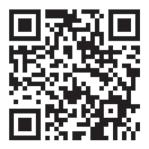
The
S.J. Quinney College of Law

THE UNIVERSITY OF UTAH
SALT LAKE CITY IS HOME TO A SIGNIFICANT AND GROWING NUMBER OF LAW FIRMS—RANGING FROM BIG LAW TO SMALL LOCAL FIRMS


The
S.J. Quinney College of Law

SALT LAKE CITY IS HOME TO A SIGNIFICANT AND GROWING NUMBER OF LAW FIRMS—RANGING FROM BIG LAW TO SMALL LOCAL FIRMS
Salt Lake City is a dynamic, growing hub for legal practice, tech, health care and other industries.
Love getting outside? Utah’s outdoor recreation is legendary—and easily accessible from campus.
The S.J. Quinney College of Law is located in Salt Lake City, a progressive state capital and regional economic epicenter that The Wall Street Journal ranked as the #1 hottest job market in the U.S. in 2024.
Resting in the foothills of the Wasatch Mountains, the College of Law serves as a gateway to campus. The University of Utah is a Tier-1 Research Institution, member of the elite Association of American Universities, and home to top-tier athletics. It’s a dynamic campus that features leading genetics and medical research, biotechnology, business, and all the variety in academic excellence you’d expect from a flagship university.
But it’s not just about schoolwork. Utah is home to world-class outdoor recreation and spectacular landscapes. The University of Utah’s Student Life Center is a state-of-the-art health, fitness, and lifestyle complex featuring intramural sports, exercise and weight rooms, and equipment rental programs that help students enjoy these amazing outdoor activities.

SUMMER MUSIC FESTIVALS, OKTOBERFEST, AND OTHER SEASONAL EVENTS YEAR-ROUND
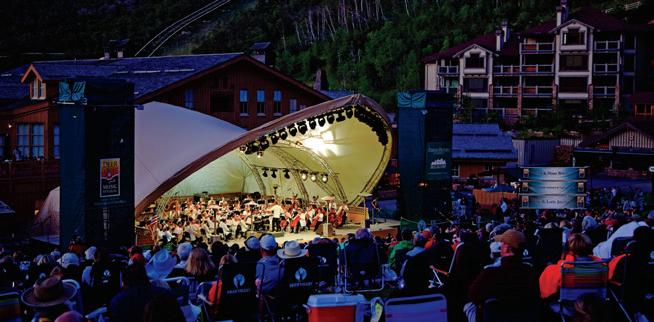
HOME OF MAJOR LEAGUE BASKETBALL, HOCKEY, AND MEN’S AND WOMEN’S SOCCER TEAMS
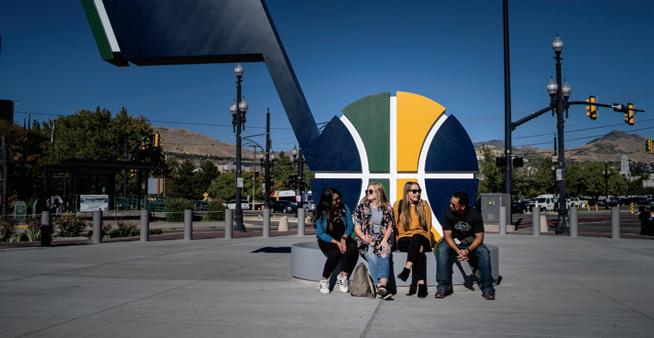
A WALKABLE, BIKEFRIENDLY CITY— RANKED IN THE TOP 10 HEALTHIEST CITIES IN THE COUNTRY (WALLETHUB 2024)


AWARD-WINNING LIGHT RAIL AND REGIONAL COMMUTER RAIL SYSTEMS

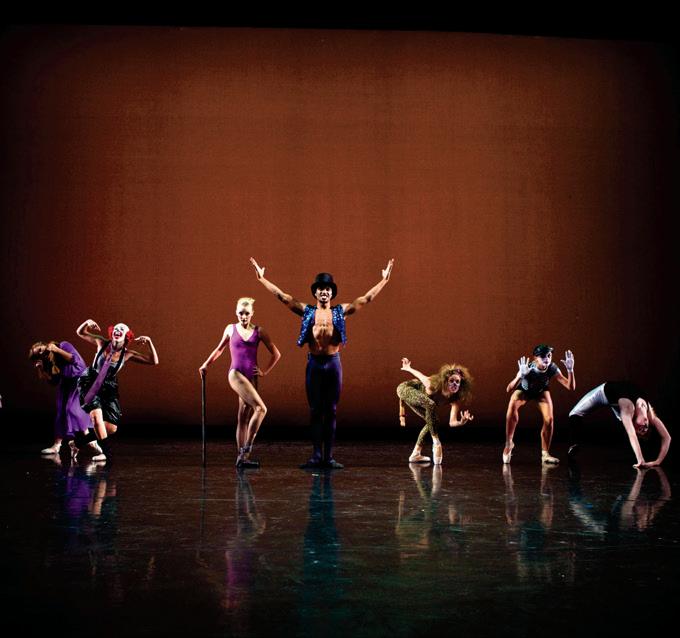
FINE ARTS MUSEUMS, DANCE, THEATER, AND THE UTAH SYMPHONY ORCHESTRA
A BURGEONING RESTAURANT SCENE, PLUS YEAR-ROUND FARMERS’ MARKETS MINUTES FROM THE WORLD-RENOWNED SUNDANCE FILM FESTIVAL


With one of the lowest student-to-faculty ratios in the country, you’ll get to know your professors and classmates. student-to-faculty ratio 4.2: 1
The expertise of our faculty is vast, and the course topics they teach are varied. Our faculty have argued before the U.S. Supreme Court, testified before Congress, and served as high-ranking government officials. They have written leading law textbooks, served as U.S. Supreme Court clerks, and drafted regulation and policy. As practicing lawyers, our faculty have worked in nationally recognized law firms. They serve in public interest organizations and actively engage in pro bono services. As recognized experts, they regularly discuss law and policy in major media outlets like The New York Times, The Wall Street Journal, NPR and CNN.
Our faculty have rich and varied real-world law experience. They embrace differences of opinion and encourage thoughtful discourse.

SCAN TO LEARN MORE ABOUT OUR FACULTY

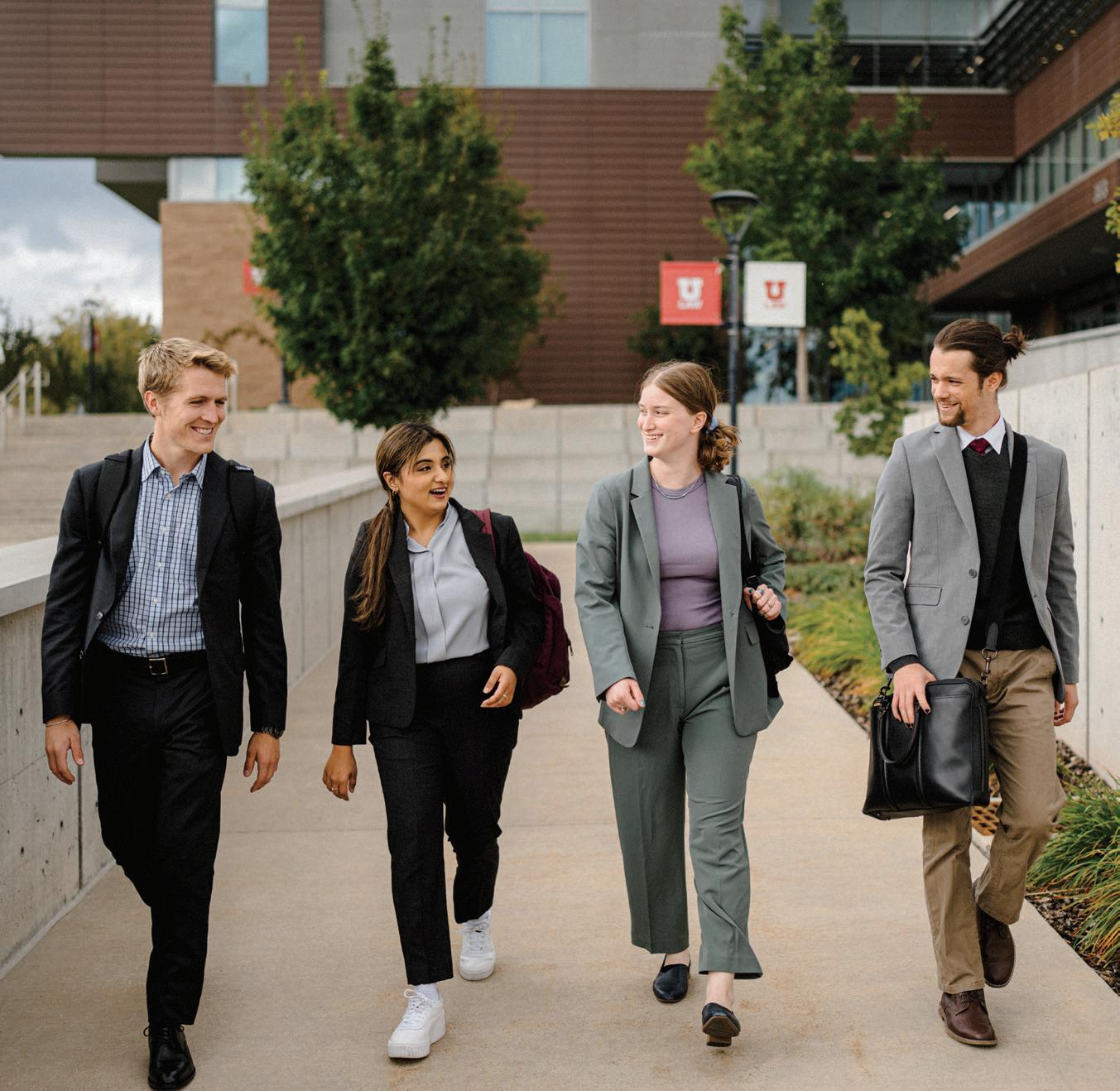
Our students learn in intimate settings throughout their time in the College of Law. Our Legal Methods program also gives students intensive writing experience and one-on-one meetings with faculty. First-year classes teach students the basics of the law and legal system, while giving them early practical training they will need to be effective lawyers.
A longstanding strength of the College of Law is our careful balance between doctrine, theory, and practice. Students have extensive courses they can choose from in their second and third years. These include specialty courses ranging from trademark to family law, numerous skills courses such as appellate practice and real estate drafting, and field placements in virtually every area of the law. Students can also cross-train through our experiential opportunities from international law to new ventures, our six dual degree programs, and our research centers. The depth in curriculum supports seven specialized proficiency programs, where students can earn a certificate of specialized legal study.
UPPER DIVISION AREAS OF FOCUS INCLUDE
Business, Real Estate, and Tax
Criminal Law
Entrepreneurship
Environmental, Energy, and Natural Resources
Family Law
Gender/Sexuality and LGBTQ Law
Health Law
International Law
Intellectual Property
Litigation and Alternative Dispute Resolution
Public Interest Law
Experiential Education (Clinics, Field Placements, and Simulations)

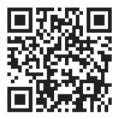
To earn a J.D., students must complete a minimum of 88 semester hours and graduate with a GPA of at least 2.5. J.D. graduates are eligible to sit for a bar exam in any U.S. jurisdiction.
Business Law
Criminal Law
Environmental and Natural Resources Law
Intellectual Property Law
International Law
Litigation and Dispute Resolution
Public Interest Law and Policy
The College of Law offers a number of unique interdisciplinary educational opportunities. Dual degree programs with other graduate schools at the university include:
J.D./Master of Business Administration
J.D./Master of City & Metropolitan Planning
J.D./Master of Public Administration
J.D./Master of Public Policy
J.D./Master of Real Estate Development
J.D./Master of Social Work
For more information on dual degree and other program requirements, visit law.utah.edu/jd-program.
The College of Law offers a specialized Master of Laws (LL.M.) degree in environmental and natural resources law. The LL.M. is a one-year full-time program requiring 24 credits. Upon request, you may petition for a part-time option.
The College of Law offers a Master of Legal Studies degree. This one-year, 30-credit program requires an undergraduate degree but no prior legal training or entrance exam. The M.L.S. program is offered in two formats: fully online, and in person at the University of Utah campus. The M.L.S. program meets the educational requirement for graduates to sit for the Licensed Paralegal Practitioner examination in the state of Utah. To learn more, visit law.utah.edu/mls

LEARN MORE ABOUT OUR DEGREE PROGRAMS
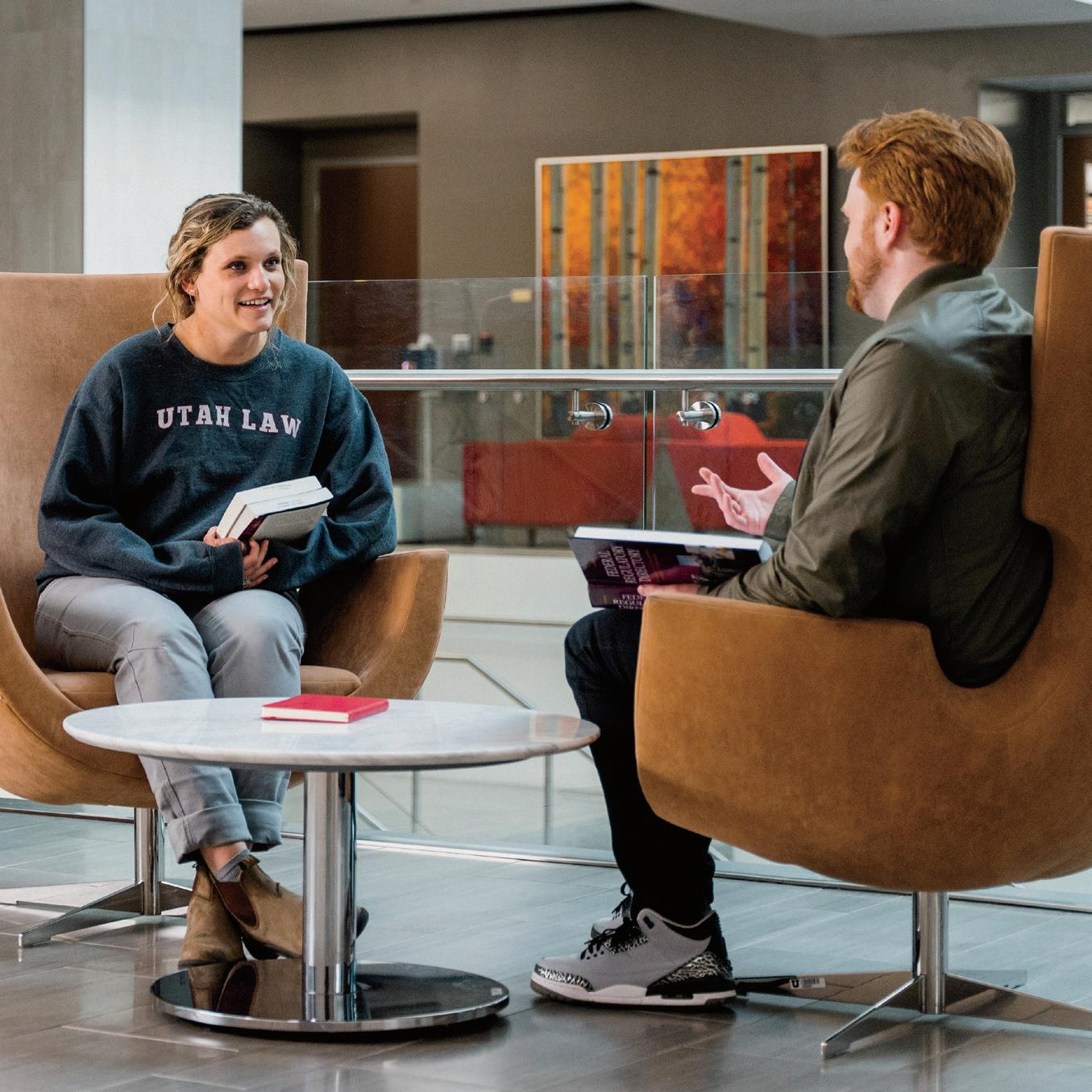
Our centers and programs offer opportunities for students and faculty to collaborate on specialized research and community engagement, and to study in niche areas of expertise. Students can gain invaluable insight into specialized areas of legal practice, helping them network and plan for their future legal careers.
The Stegner Center offers students one of the top environmental law programs in the nation. Educational opportunities include a J.D. certificate in environmental and natural resources law, in-house clinics in environmental justice and environmental law policy, and numerous substantive law courses. Other opportunities include an LL.M. degree, a research fellows program, and a variety of public events and speakers.
The Stegner Center boasts a talented and diverse team of faculty who are working to shape environmental law and policy, and who are committed to involving students in their work. Our faculty members serve on local and national NGO boards and advisory committees, collaborate with state and federal government officials to improve environmental policies, and advocate in the courtroom and legislative chambers.
law program ranked
LABS is an interdisciplinary group of faculty and students engaged in cutting-edge research and teaching on issues at the intersection of law and biomedical sciences. We’re committed to explaining and improving the law in rapidly evolving fields to help overcome the critical health challenges of our times.
Our faculty are experts in bioethics, biotechnology regulation, disability law, evidence, food and drug law, intellectual property, neuroscience, public health law, reproductive rights, and many other areas of law.
Recent course offerings include health law, FDA law, genetics and medicine, law and neuroscience, and seminars on abortion law and the opioid crisis. Students can also earn a J.D. certificate in IP law; get hands-on experience through field placements in health law, IP law, and law and the biosciences; and attend our annual colloquium with prominent speakers from around the nation.
Health law program ranked
Among public law schools
U.S. News & World Report 2024
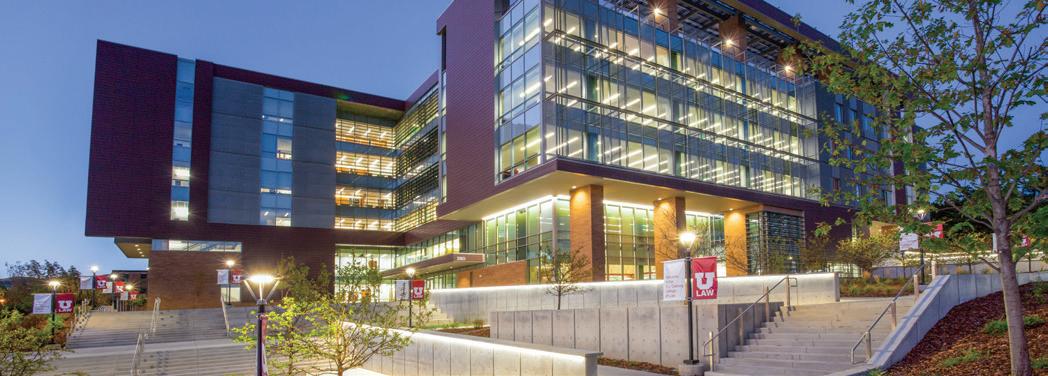
The Program in Intellectual Property and Technology Law seeks to advance our understanding of IP law, how it affects innovation and markets, and how IP law practices can be improved. The program offers a J.D. certificate in IP law, as well as opportunities to engage in field placements and research in IP law and related fields such as innovation theory and science and technology policy.
IP courses include core topics such as copyright, patent and trademark law, IP transactions, and law and biomedicine. Specialized courses include antitrust, health law, bankruptcy, taxation, data privacy, entrepreneurship law, and art, entertainment and sports law.
Students can participate in competitions including the AIPLA Giles S. Rich Moot Court Competition and the National Patent Application Drafting Competition.
Our Program in Criminal Law offers a full range of criminal law courses, as well as a J.D. certificate in criminal law. Our faculty are engaged in innovative research, policy work, and community engagement in areas such as prosecution, wrongful conviction, crime victims’ rights, violent crimes, and more. Students have opportunities to get involved with faculty research and policy projects, and to co-author publications with faculty.
Course offerings include foundational topics such as criminal law, criminal procedure, evidence and criminal process, as well as specialized topics like crimmigration and environmental crime. Students can also participate in experiential learning opportunities such as the Post-Conviction Clinic; the annual counterterrorism simulation; and a variety of field placements, including at local prosecutors’ and public defenders’ offices, the Utah Crime Victims Legal Clinic, and more.
IP law program ranked
#10
Among public law schools
U.S. News & World Report 2024 Best Law Schools
Criminal law program ranked
#14
Among public law schools
U.S. News & World Report
2024 Best Law Schools
Our award-winning moot court and competition programs allow students to work closely with faculty to develop legal skills in real-world situations. Our teams are nationally competitive, and regularly advance or win awards in prestigious competitions such as the Jeffrey G. Miller National Environmental Law Moot Court Competition or the Giles S. Rich IP Moot Court Competition.
We offer a wide array of competition opportunities, including in:
Appellate advocacy
Trial advocacy
Environmental law
International law
Corporate law
Bankruptcy
Negotiation
Intellectual property
Moot court competitions give students the opportunity to practice the written and oral skills they learn in class. These skills are highly prized by potential employers.


teams have competed nationally in the past three years
Hands-on experience lets you identify which areas of law interest
you, helping you hit the ground running in your new legal career.

Experiential education is a critical component of training at Utah Law, providing hands-on experience that bridges the gap between the classroom and real-world lawyering. Learn more at law.utah. edu/experiential-education
Environmental Justice Clinic
Partner with low-income and Indigenous communities to design and implement advocacy strategies that build community power. Students develop and apply skills in fact-finding, community engagement, and grassroots organizing.
Environmental Policy Accelerator
Develop legal and policy analysis to assist policymakers confronting environmental challenges, such as water conservation and the shrinking Great Salt Lake.
International Law Clinic
Collaborate on projects addressing contemporary issues of international law. Students learn to communicate the practical relevance of international law while building research and drafting skills through complex legal analysis.
Post-Conviction Clinic
Assist with investigating and litigating cases in which convicted clients claim that they are innocent or that their constitutional rights have been violated by the criminal justice system.
Refugee Law Clinic
Represent refugees and other immigrants who are seeking protection from persecution in their country of origin. Students assist clients with accessing resettlement benefits, applications for asylum, and other humanitarian forms of protection.
Earn academic credit while you gain practical skills and training under licensed attorneys in the field. Utah Law has field placements in over 100 different settings across more than a dozen areas of law, and new placements are developed every semester.
Spend a semester learning, working and networking in Washington, D.C. With support from our alumni network in the D.C. Metro area, this is an ideal way to build the experience and connections you need to launch a career in our nation’s capital.
Simulation courses engage students in dynamic, real-world lawyering tasks based on hypothetical scenarios. You’ll build concrete skills to be ready for practice through simulation courses such as Trial Advocacy, Global Perspectives on Counterterrorism, Real Estate Development and the Family Law Practice Lab.
Beginning their first year, students are eligible to volunteer with the Pro Bono Initiative (PBI)—one of the most extensive in-house pro bono programs in the nation. PBI provides opportunities to engage and serve the community while building lawyering skills, and students who graduate with 50 or more hours of pro bono service receive a certificate of service and wear honors cords during commencement. PBI also offers paid student director and fellowship opportunities for students dedicated to pro bono service. Visit law.utah.edu/pro-bono-initiative for more information.
Beginning in their first year at Utah Law, students benefit from a wide range of support and advising to help them reach their academic and career goals.
The College of Law’s Career Development Office (CDO) provides students with the tools and resources they need to launch a rewarding career. Through a full slate of seminars, programs, and individual counseling, the CDO helps students navigate the job search process, prepare winning résumés, and hone interviewing skills.
The CDO hosts on-campus recruiting sessions with legal employers, mentoring programs, lunchtime information sessions, seasonal job fairs, opportunities to compete for jobs across the country, and the popular “firm crawl,” where students visit downtown Salt Lake City law firms. Visit law.utah.edu/cdo for more information.
The CDO is also engaged with the Judicial Clerkship Committee, which is composed of faculty members who have had prominent clerkships—including with members of the U.S. Supreme Court. The committee’s goal is to support students in the competitive process of pursuing clerkships.
Through student-centered programs and services, the Office of Student Affairs works to create a welcoming community that fosters a sense of wellness and belonging for Utah Law students. The Student Affairs team offers J.D. academic advising, registration and graduation-related support, counseling services, ADA support, and student activities that build community and focus on wellness.
Success in law school requires students to develop the analytical skills necessary to solve specific legal problems through the application of general legal principles.
The Academic Success Program (ASP) offers students an opportunity to practice these skills in a collaborative environment with guidance and feedback. ASP conducts a series of skills-based workshops open to all incoming students during the first semester of law school. ASP also presents a series of first-semester seminars regarding studying and exam taking, conducts a practice midterm, and holds a final exam session during fall semester.
For 3L students, the college provides a bar exam preparation program that guides and mentors students as they prepare to take the bar exam.
Involvement in student organizations allows students to broaden their law school experience by sharing ideas and experiences with faculty, alumni, and fellow students. The College of Law supports a wide array of student organizations. This includes a range of judicial philosophies and practice areas, as well as student associations focused on various affinity groups. For a full list of opportunities, visit law.utah.edu/student-orgs.
Utah Law offers one of the best value programs in the country. In fact, PreLaw magazine has rated us as a “Best Value” law school for the past 12 years.
We make every effort to keep tuition low and provide generous financial assistance. All admitted candidates are considered for merit-on-entrance scholarships based on the contents of their application for admission. Fellowships and scholarships are also available for second- and third-year students. For more information, visit law.utah.edu/financial-aid
A Best Value Law School, 2012-2024

98.1%
94.8 of students received scholarship or fellowship awards in 2023-2024 %
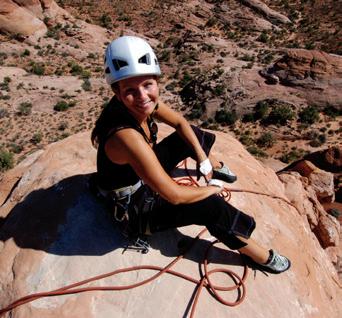

Not only is the Intermountain West one of the hottest areas in the nation for legal jobs, but U.S. News & World Report rates Utah the best state in the nation (2024) and calls Salt Lake City one of the best places to live. Utah is a mecca for students and young professionals, as well as outdoor recreation enthusiasts.
2.7 M population in Wasatch Front area
46 state parks
Seven ski resorts within 30 minutes of campus
World-class hiking, skiing, biking, fishing, and endless opportunities for other outdoor recreation
Home to the 2002 Winter Olympics and other prominent international outdoor sports competitions

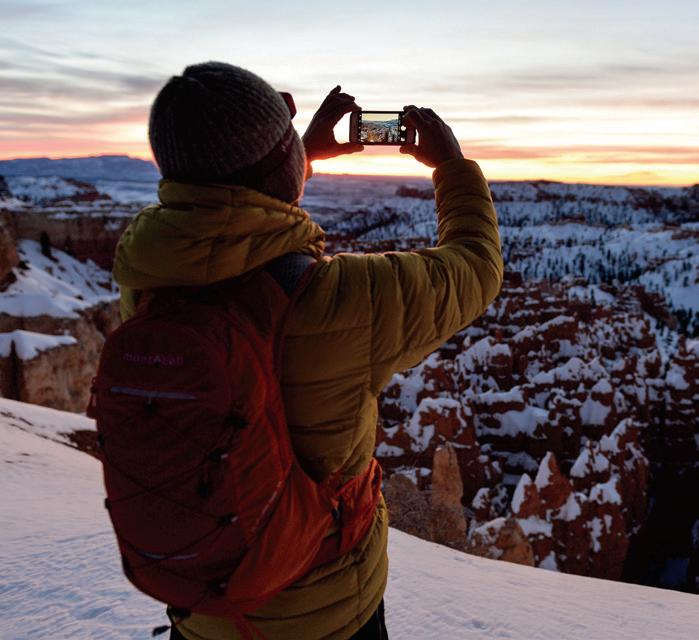



CLASSROOMS FEATURING CUTTINGEDGE TECHNOLOGY

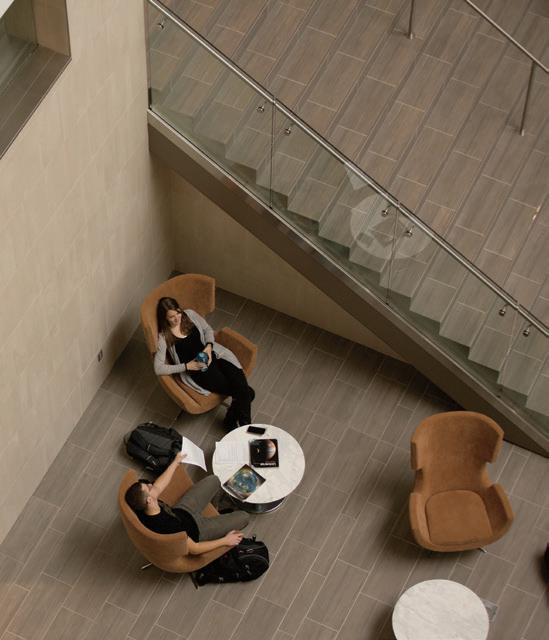
ROOFTOP TERRACE SHADED BY SOLAR PANELS COMMON STUDY SPACES
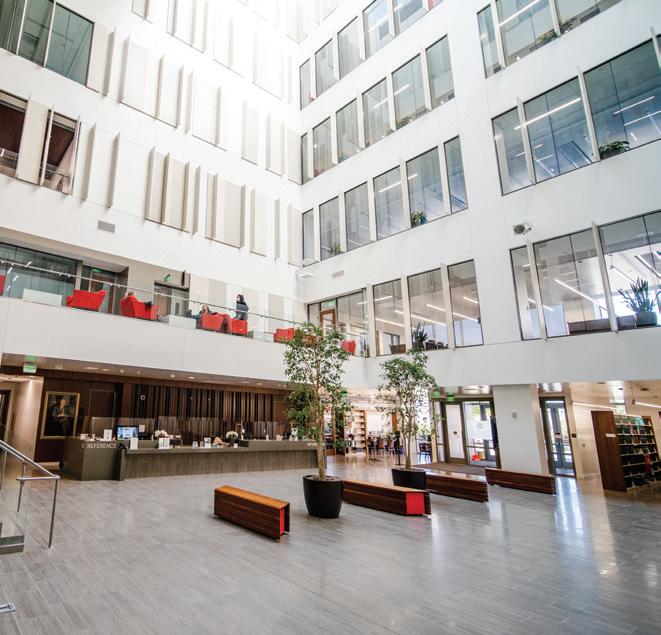



Additional building features include:
• 24/7 building access
• Student activity center
• Recreational support spaces for students, including cardio room, showers, secure bike storage, and outdoor basketball court
• Accessible design incorporated throughout building
• Lockers for every student
• Student kitchenettes on many floors
• Meditation room
• Dedicated offices for law review editorial staff
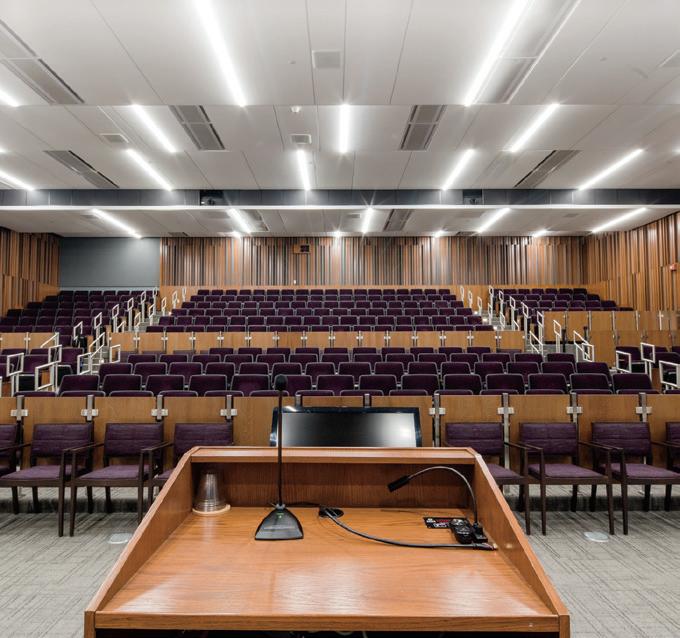
• Locally owned café in building

IMPORTANT DATES AND DEADLINES
September 1 J.D. applications available
EARLY DECISION PROCESS*
October 25 Early decision application deadline
November 15 Early decision admission notification
REGULAR APPLICATION PROCESS
January 15 Priority consideration deadline
March 10** Final deadline
*The early decision application is binding; thus, if you apply, and you are subsequently admitted, you commit to enroll at and attend the University of Utah S.J. Quinney College of Law. If you submit your completed early decision application by October 25, you will be notified of your application status by November 15.
**Application files received after the final deadline will be reviewed if seats remain available.

SEE DETAILED ADMISSIONS INFORMATION AND INSTRUCTIONS
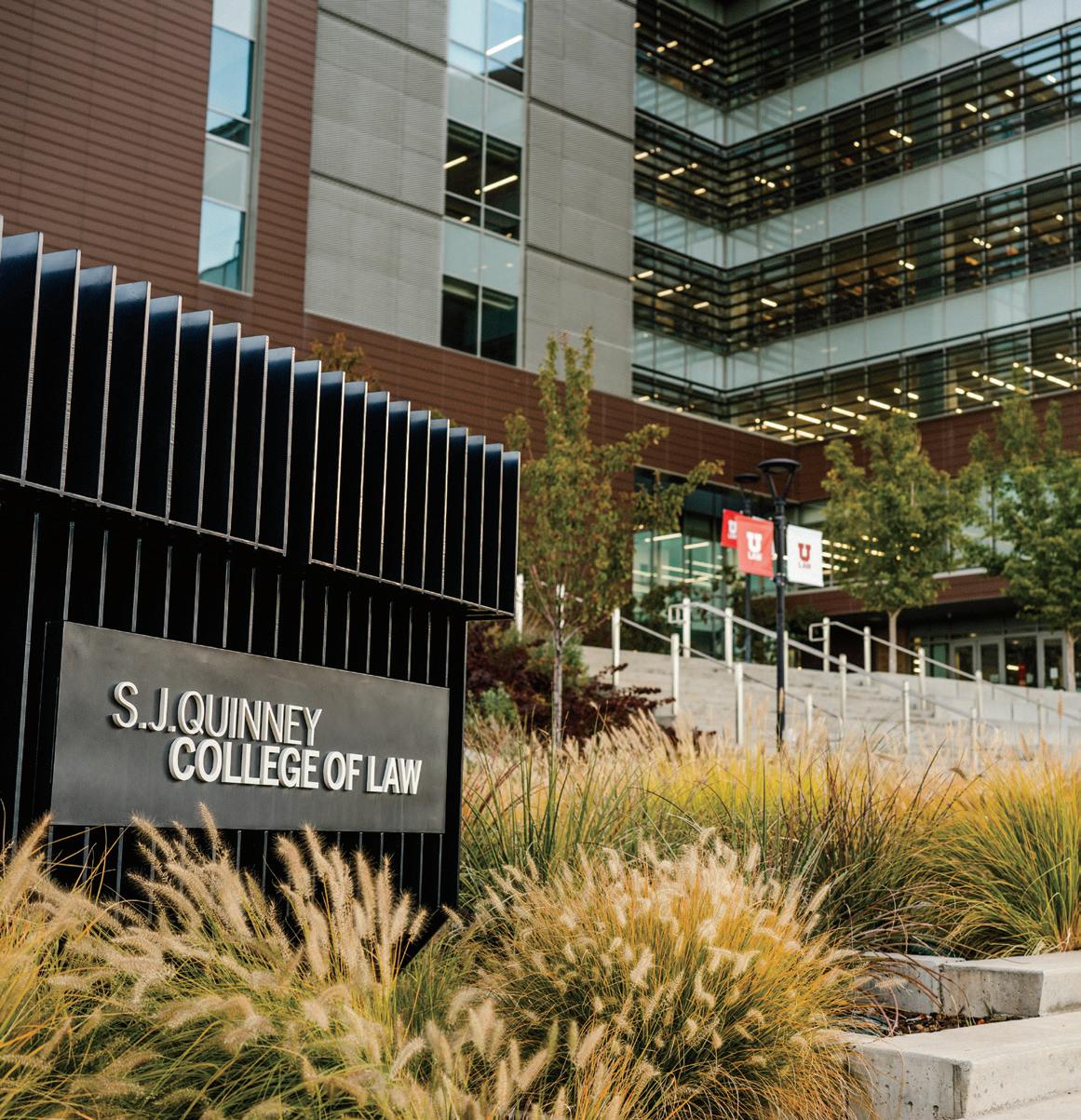
J.D. APPLICATION REQUIREMENTS
Completed application form
Non-refundable $60 application fee
Personal statement Résumé
Official Credential Assembly Service (CAS) Report
• Official transcripts sent directly to the Credential Assembly Service (CAS)
• Baccalaureate degree from an accredited university recognized by the U.S. Department of Education (or foreign equivalent)
• LSAT score(s)*
• LSAT Writing sample*
• Letter(s) of recommendation (one required, but you may submit a maximum of three)
For applicants educated outside the U.S.:
• IBT/TOEFL (preferred score: 100+), or
• IELTS (preferred score: 7+)
*Files will be processed if a valid LSAT score and LSAT Writing sample are on file unless the candidate requests a hold on review.
OPTIONAL MATERIALS MAY INCLUDE: (See application instructions)
• Addendum
• Life perspectives statement
• Leadership statement
When we assess applicants for admission, academic aptitude is not the only factor considered. Below is a list of factors to keep in mind:
LSAT score(s)
Undergraduate GPA
Advanced work, other degrees
Major Difficulty of college coursework
Grade trends
Dominant language or other language skills
Family education history
Other test scores
Hours worked and other responsibilities during school
Age (life experience)
Geographic residence
Socioeconomic status, family size
Multicultural experiences
Growing up in a low-income community
Law-related experience or knowledge
Military status
Work experience
Position
Level of responsibility achieved
Full time, part time
Number of years worked
Type of industry or business
Follow-through ability
Undergraduate or graduate leadership activities
Community leadership/accomplishments
Volunteer activities
Academic leadership and organizations
Civic engagement
Athletic activities
Travel, foreign living
Service activities
Special skills and talents
Music, drama, writing, art
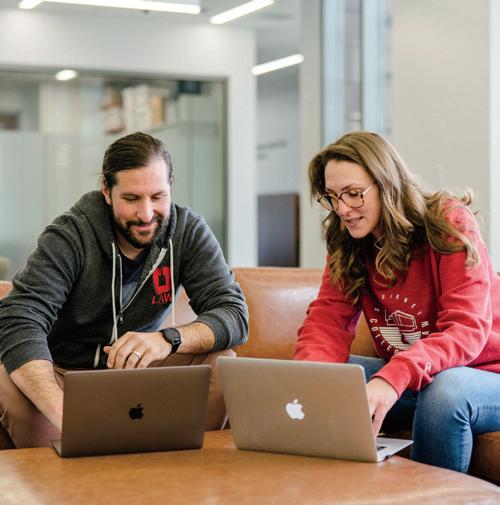
NOTICE: The information in this bulletin is current as of the time of publication but is subject to change without notice. The University of Utah S.J. Quinney College of Law Bulletin is not a contract between the University of Utah and any person or entity.
The S.J. Quinney College of Law is approved by the Council of the Section of Legal Education and Admission to the Bar of the American Bar Association. The address and telephone number for the Council are: American Bar Association, 321 N. Clark Street, 21st Floor, Chicago, IL 60654. (312) 988-6738.
The Family Educational Rights and Privacy Act guarantees to University of Utah students certain rights regarding their official records maintained in the Office of the University Registrar, 250 Student Services Building. Additional records are maintained at the S.J. Quinney College of Law. The act requires that the University forbid the release of personally identifiable student educational records or files, or of personal information contained in those files, without the written consent of the student, except in certain specified situations. The S.J. Quinney College of Law also extends this policy to applicants and applicant records.
For additional information regarding the privacy rights of students and applicants or access to student and applicant records, consult the dean’s office at the S.J. Quinney College of Law.
The University of Utah strongly endorses the Student Right-to-Know and Campus Security Act. On the University of Utah campus, state laws are enforced at all times and adjudicated in a court of law. Infractions of the University of Utah Student Standards of Academic Performance and Standards of Behavior should be referred to the Office of the Dean of Students.
The University of Utah is committed to providing a supportive learning environment and fostering safe, healthy relationships among our students. To do so, the University will immediately and appropriately respond to reports of sexual misconduct, including the offenses of dating violence, domestic violence, sexual assault, or stalking.
Title IX makes it clear that violence and harassment based on sex and gender are the most egregious forms of sex discrimination. University policy also prohibits discrimination based upon sexual orientation, gender identity and gender expression. These offenses are subject to the same accountability standards as offenses against individuals in any protected class and the same kinds of support are available.
When OEO receives a report of sexual misconduct, the university will respond by providing information about support and resources on campus and will also explain options for addressing the behavior including filing a Formal Complaint with the OEO under university policy and/or reporting to law enforcement. Supportive Measures are available to those who experience Sexual Misconduct, whether or not you choose to file a Formal Complaint or report to law enforcement.
If you or someone you know has experienced sexual misconduct including sexual harassment, we encourage you to report it to the Office of Equal Opportunity, Affirmative Action, and Title IX:
Jess Morrison
Interim Director
Office of Equal Opportunity, Affirmative Action, and Title IX (OEO)
383 South University Street, Salt Lake City, UT 84112 801-581-8365
oeo@utah.edu
Online reports may be submitted at oeo.utah.edu
More information about the University policies can be found at our website at oeo.utah.edu Relevant University of Utah’s policies can be found at: regulations.utah.edu/general/1-012.php regulations.utah.edu/general/1-011.php
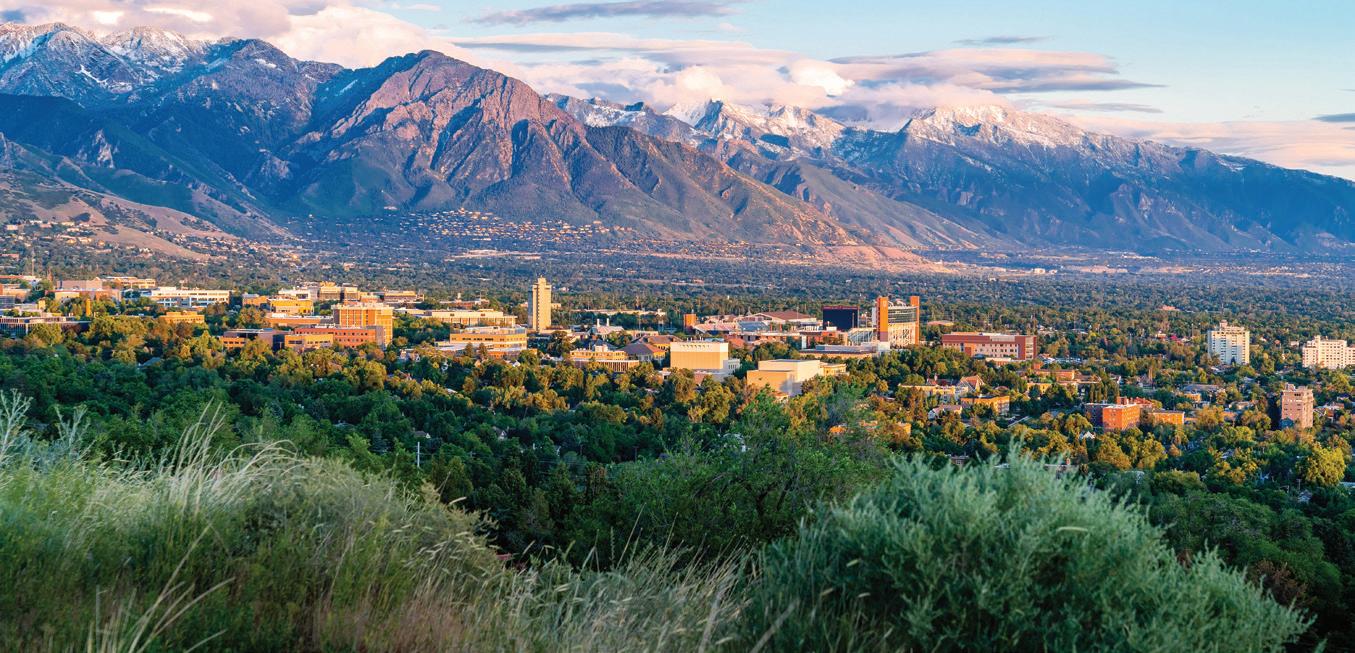

Office of Admissions
383 S. University Street Salt Lake City, UT 84112 (801) 581-7479
law.utah.edu/admissions admissions@law.utah.edu
Facebook.com/sjquinney Linkedin.com/school/sjquinney Instagram.com/sjquinney
We acknowledge that this land, which is named for the Ute Tribe, is the traditional and ancestral homeland of the Shoshone, Paiute, Goshute, and Ute Tribes. The University of Utah recognizes and respects the enduring relationship that exists between many Indigenous peoples and their traditional homelands. We respect the sovereign relationship between tribes, states, and the federal government, and we affirm the University of Utah’s commitment to a partnership with Native Nations and Urban Indian communities through research, education, and community outreach activities.
VISIT OUR WEBSITE
